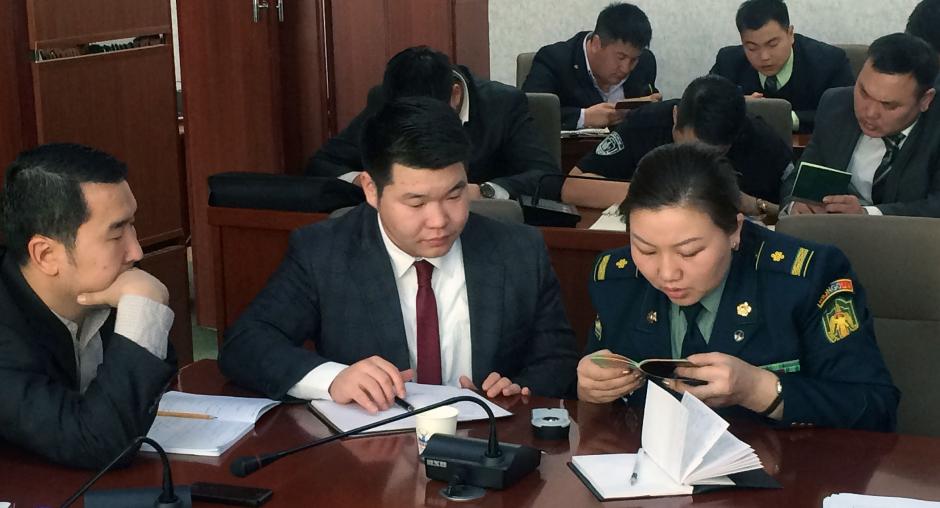OSCE trains Mongolian law enforcement personnel on detecting forged travel documents

ULAANBAATAR, 17 October 2016 – A one-week intensive training course for Mongolian law enforcement personnel aimed at increasing their operational awareness to detect forged travel documents started today in Ulaanbaatar. This is the first of a series of trainings courses organized by the OSCE on detecting forged documents that will take place every autumn in Mongolia over the next five years to 2020.
The training course, organized by the OSCE Transnational Threats Department (TNTD), will have a strong interactive component, as it will include practical work on original, forged and false documents, as well as the use of forensic equipment to identify document forgery.
The growing volume of new passports and other identity documents in circulation has resulted in a diversification of forgery trends and more complex forgery methods, which requires that border control officers are up to date on the latest trends in document fraud. In this context, border control capacities for the efficient detection of forged documents are one of the most significant tools to counter concerns of terrorism, trafficking, organized crime, and illegal migration.
The advance training course represents an effort to ‘institutionalize’ the previous work of the OSCE in Mongolia. From 7 to 11 March 2016, the TNTD trained 35 Mongolian officers on the passport manufacturing process, identity document security features, as well as the latest trends in counterfeiting methods and the means of identifying them. The follow-up training courses will allow for a sustainable and viable national training programme in Mongolia.
The OSCE has organized similar courses on multiple occasions in more than 25 countries throughout the OSCE region, in co-operation with document experts from the Austrian Ministry of Interior. The Austrian training material is accepted by the European Agency for the Management of Operational Co-operation at the External Borders (FRONTEX) as a best practice.
The training is being organized with donor support from Germany’s 2016 OSCE Chairmanship.
